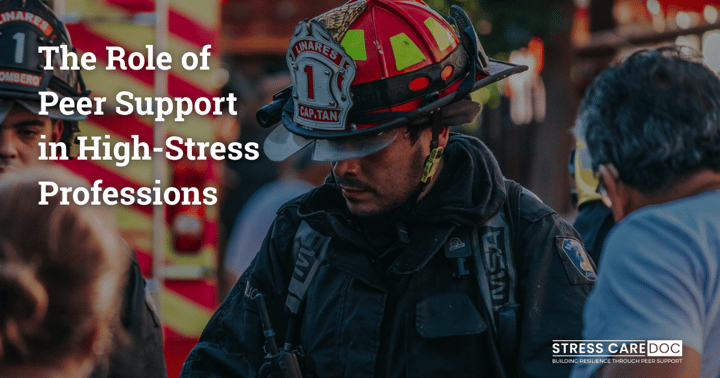Unlocking the Secrets to Restorative Sleep for Shift Workers

Have you ever found yourself lying in bed, exhausted after a long shift, but still can’t fall asleep? Or maybe you finally drift off, only to wake up at 2 AM, staring at the ceiling while your mind replays all the junk you had to deal with during your shift. For many shift workers, restful sleep can feel like a distant dream. If this sounds familiar, you’re not alone, and there is hope.
In episode three, we talk about sleep with Dr. Philip Connor, a board-certified sleep medicine expert who has helped thousands of shift workers and others find quality sleep. With over 20 years of practice in family medicine and sleep medicine, Dr. Connor offers invaluable insights into how shift workers can improve their sleep and wake up feeling refreshed and ready for the day.
Understanding the Challenges of Shift Work
One of the most significant hurdles for shift workers is the disruption of the natural circadian rhythm. Our bodies are hardwired to follow a day-night cycle, dictated by the presence of sunlight. This internal clock signals when it’s time to be awake and when it’s time to rest. However, shift work often upends this cycle, making it challenging to get quality sleep.
Dr. Connor explains, “Our brains evolved to follow a day-night cycle based on the sun. When we’re exposed to light in the morning, it signals our bodies to wake up. Conversely, the diminishing light in the evening cues us to prepare for sleep. Shift work disrupts these natural cues, making it harder to fall asleep and stay asleep.”
Strategies for Better Sleep
Despite these challenges, there are effective strategies that shift workers can employ to improve their sleep quality. Here are some tips from Dr. Connor:
- Consistency is Key: Maintaining a consistent sleep schedule, even on days off, helps regulate your body’s internal clock. If you work nights, try to keep the same sleep routine even on your days off. Avoiding exposure to sunlight in the morning by wearing sunglasses and going straight home can also help.
- Create a Sleep-Friendly Environment: Your bedroom environment plays a crucial role in your ability to fall asleep. Dr. Connor recommends using blackout curtains to block out daylight and keeping your room cool and quiet. A good sleep mask will also keep out any light left in the room. Using a white noise machine or earplugs can also help eliminate disruptive noises.
- Pre-Sleep Routines: Establishing a calming pre-sleep routine can signal your body that it’s time to wind down. Avoid stimulating activities like watching action movies or the news. Instead, engage in quiet activities such as reading, doing puzzles, or praying. Dr. Connor also suggests journaling for 15-20 minutes before bed to release any pent-up thoughts and stress from the day.
- Avoiding Stimulants: Consuming alcohol or caffeine too close to bedtime can interfere with your sleep. Alcohol, in particular, can disrupt the second half of your sleep cycle, leading to fragmented and less restorative sleep. Aim to have your last drink at least four hours before bedtime.
Addressing Common Sleep Issues
Dr. Connor also highlights common medical problems that can complicate sleep, such as sleep apnea, pain, and heart conditions. Sleep apnea, a condition where breathing repeatedly stops and starts during sleep, is particularly prevalent among shift workers. It can lead to chronic fatigue and other health issues if left untreated.
“Sleep apnea can significantly impact your sleep quality because your brain will always prioritize maintaining oxygen levels over deep sleep,” Dr. Connor explains. “If you wake up feeling unrefreshed, it’s worth investigating whether sleep apnea might be the cause.”
The Importance of Professional Help
If you find that despite your best efforts, you’re still struggling with sleep, seeking professional help is essential. A sleep specialist can conduct a thorough evaluation and recommend appropriate interventions, such as Continuous Positive Airway Pressure (CPAP) therapy for sleep apnea.
Dr. Connor advises, “If you’re waking up feeling tired and unrefreshed or if your sleep issues are affecting your daytime performance, it’s time to seek professional help. Keeping a sleep diary for a couple of weeks can provide valuable insights into your sleep patterns and help your doctor diagnose the problem.”
Final Thoughts and Encouragement
The journey to better sleep can be challenging, especially for shift workers whose schedules are inherently irregular. However, with the right strategies and professional guidance, it’s possible to reclaim restorative sleep and improve overall well-being.
Dr. Connor emphasizes, “One of the first casualties of poor sleep is confidence in your ability to sleep. Remember that you are hardwired to sleep, and with the right interventions, you can achieve the restorative sleep you need. Don’t give up hope.”
As you navigate the complexities of shift work and sleep, remember that consistency, a sleep-friendly environment, and healthy pre-sleep routines are your allies. If you’re struggling, don’t hesitate to seek professional help. Your health and well-being are worth it.
For more resources and to learn about Dr. Connor’s work, visit the Sleep Disorder Center of Louisiana. Whether you need in-person consultations or telemedicine services, help is available to guide you on your journey to better sleep.
You can also download "The Shift Worker's Sleep Solution" eBook to learn how to get better sleep before your next shift.





